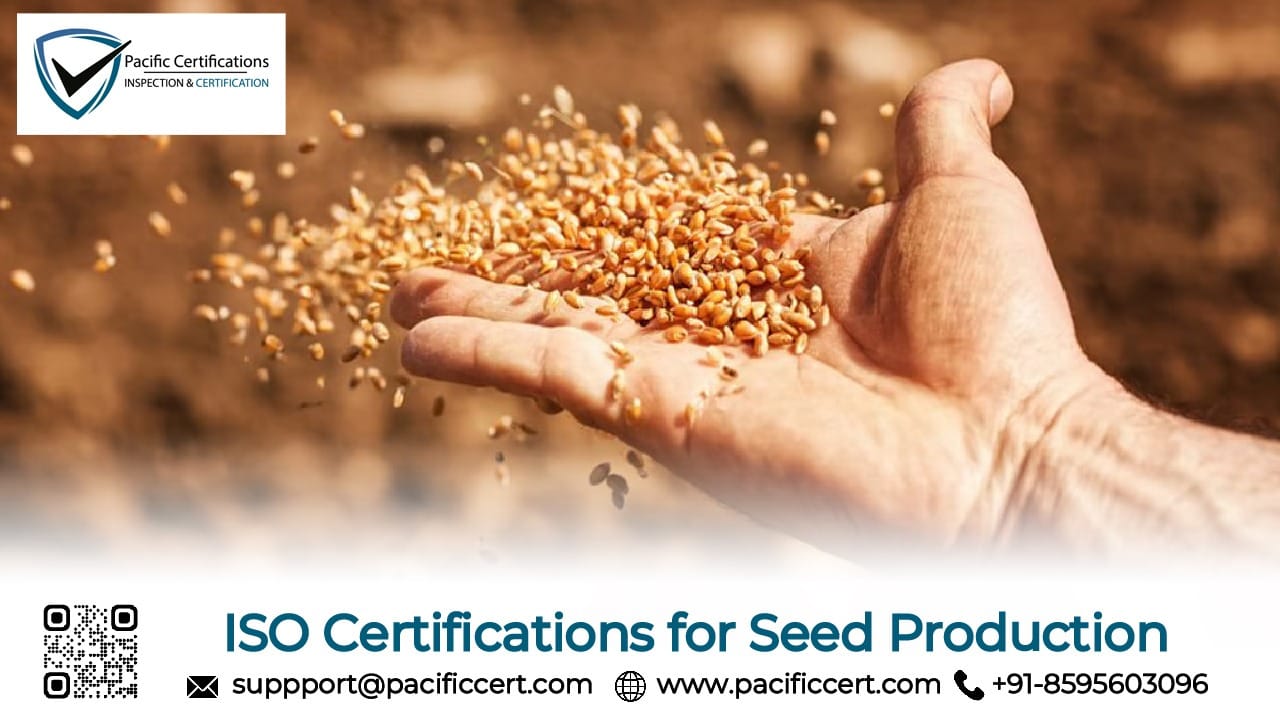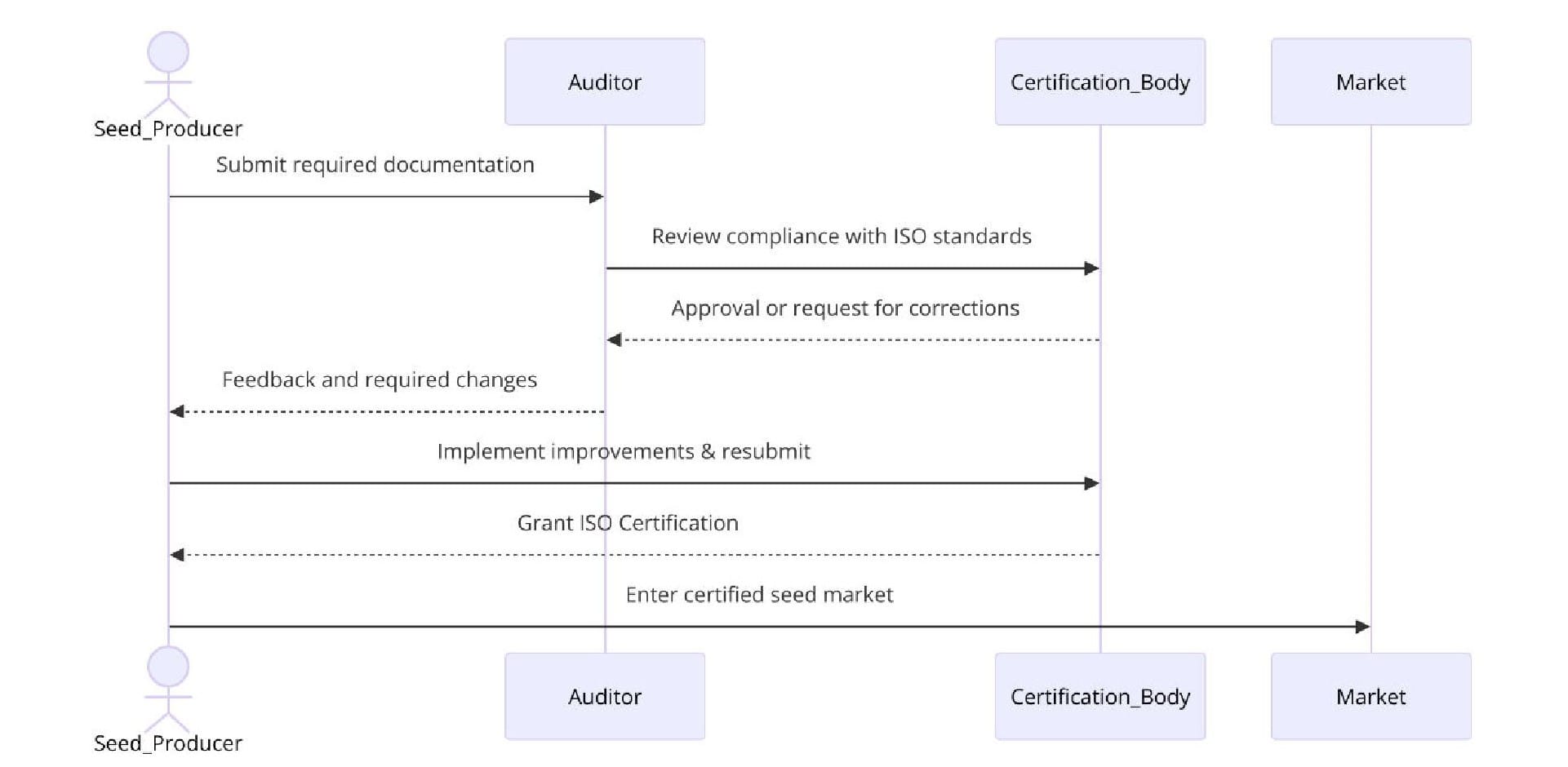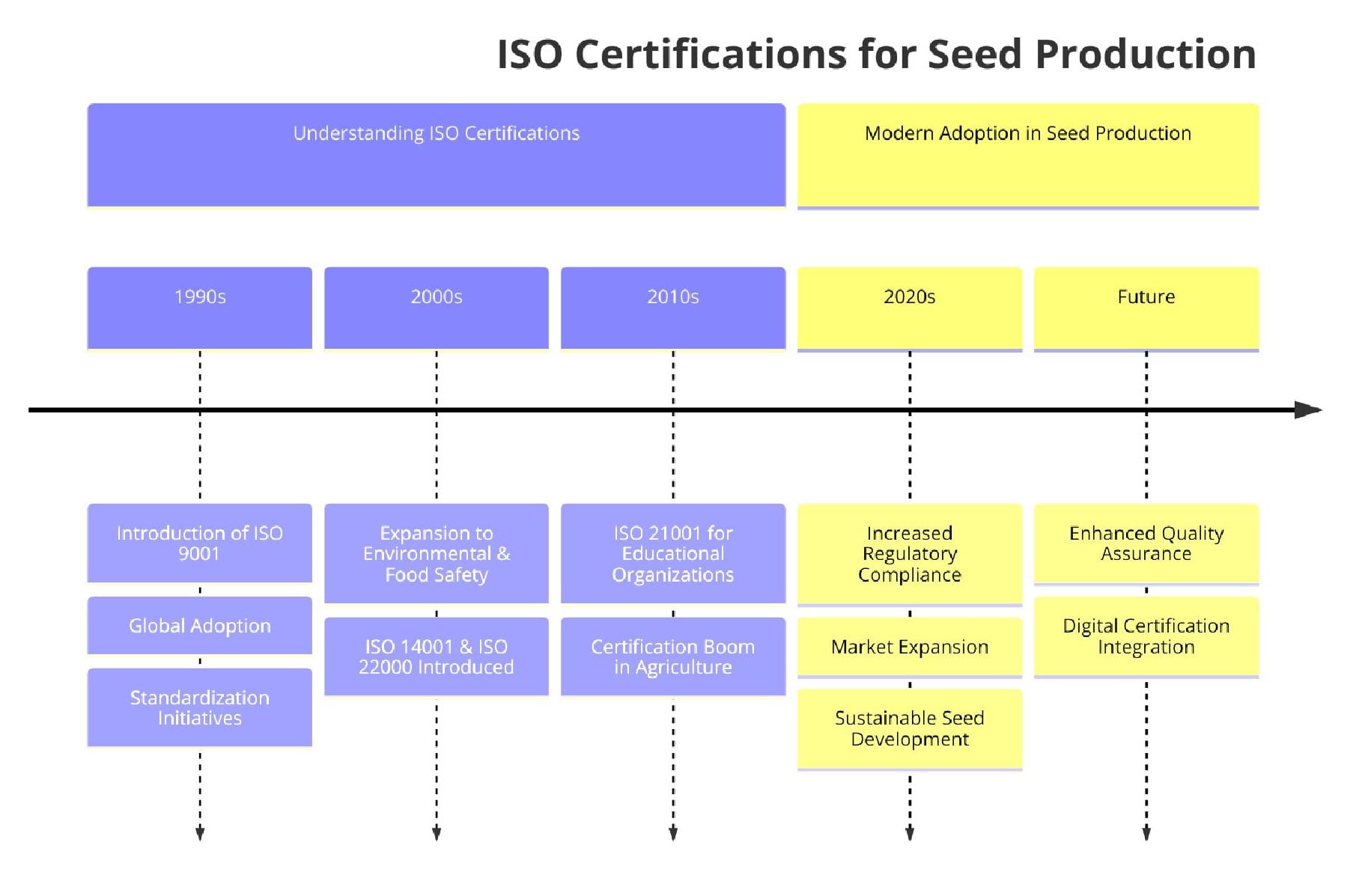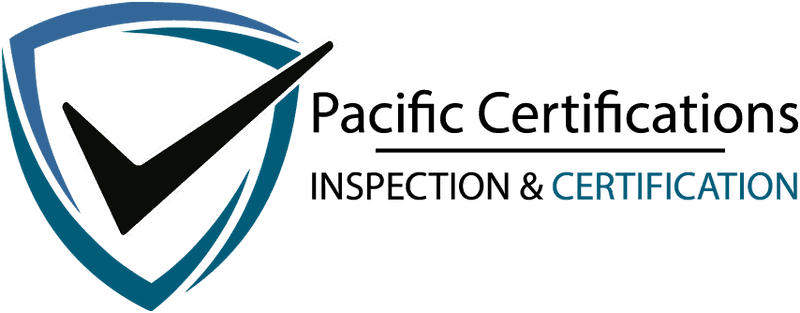ISO Certifications for Seed Production Businesses, Requirements and Benefits

Introduction
Seed production businesses form the foundation of global agriculture. From crop quality to food security, the reliability and purity of seeds directly influence yield, sustainability, and farmer trust. With increasing regulations, biotechnology advancements, and demand for high-quality seeds, adopting ISO certifications has become essential.
These standards help seed producers ensure genetic purity, safety, environmental responsibility, and efficiency, while building credibility with farmers, exporters, and regulators worldwide.
High-quality seeds grow more than crops — they grow trust, credibility, and long-term success.
Send your inquiries to [email protected], and our team will assist you with the certification process.
Applicable ISO Standards for Seed Production
Several ISO standards are relevant to seed production, covering quality management, environmental responsibility, and laboratory testing. Below are some of the most important ISO certifications for the seed industry:
ISO 9001:2015 – Quality Management System (QMS)
ISO 9001:2015 is one of the most widely recognized standards for quality management. It ensures that seed production processes are consistently monitored, improved, and aligned with customer requirements. Implementing ISO 9001 helps seed producers enhance efficiency, reduce waste, and increase customer satisfaction.
ISO 22000:2018 – Food Safety Management System (FSMS)
Since seeds are a crucial part of the food supply chain, ISO 22000 ensures that food safety hazards are controlled throughout the seed production process. This standard integrates HACCP (Hazard Analysis and Critical Control Points) principles to identify and mitigate risks in seed storage, processing, and distribution.
ISO 14001:2015 – Environmental Management System (EMS)
Sustainable seed production is essential for maintaining biodiversity and minimizing environmental impact. ISO 14001 helps seed producers manage their environmental footprint by implementing sustainable agricultural practices, reducing waste, and complying with environmental regulations.
ISO 17025:2017 – Testing and Calibration Laboratories
ISO 17025 is critical for seed testing laboratories, ensuring accuracy, reliability, and competence in seed quality testing. Certified laboratories can provide trustworthy test results for seed purity, germination rates, and disease resistance, supporting regulatory compliance.
ISO 45001:2018 – Occupational Health and Safety (OHS)
Seed production involves agricultural workers handling chemicals, machinery, and biological materials. ISO 45001 focuses on worker safety, reducing workplace hazards, and ensuring a healthy working environment for employees in the seed production industry.
ISO 3166 – Country Codes for Seed Trade
For international seed trade, ISO 3166 provides a standardized coding system for countries, ensuring seamless documentation, labeling, and regulatory compliance in cross-border seed transactions.
By obtaining these ISO certifications, seed producers can improve overall product quality.
Click here to find out more applicable standards to your industry
At Pacific Certifications, we specialize in auditing and issuing ISO certifications for seed production companies. We work with seed producers, laboratories, and agricultural organizations worldwide, providing independent certification services that add credibility to your operations.
Visit Our Website – Explore our services and certification details online. For inquiries, email us at [email protected].
What are the requirements of ISO Certifications for Seed Production?
To achieve ISO certification, companies must meet specific requirements under each standard. Below is a concise breakdown of the key requirements for each relevant ISO standard:
ISO 9001:2015 – Quality Management System (QMS)
Establish a documented quality management system (QMS)
Define and follow standardized seed production processes
Maintain detailed records of seed batches, testing, and distribution
Implement continuous improvement and customer satisfaction measures
Conduct internal audits to ensure compliance
ISO 22000:2018 – Food Safety Management System (FSMS)
Conduct a hazard analysis of potential risks in seed processing
Implement HACCP (Hazard Analysis and Critical Control Points) principles
Ensure proper traceability and recall procedures for unsafe seeds
Maintain hygienic processing, storage, and distribution conditions
Train employees on food safety and regulatory compliance
ISO 14001:2015 – Environmental Management System (EMS)
Develop an environmental policy and risk management plan
Monitor and reduce environmental impact (e.g., soil health, water usage)
Implement waste management and pollution control measures
Comply with local and international environmental laws
Continuously improve sustainability efforts
ISO 17025:2017 – Testing and Calibration Laboratories
Maintain accurate and reliable seed testing procedures
Use calibrated equipment for purity, germination, and disease testing
Employ competent and trained lab personnel
Follow standardized methods for seed quality testing
Ensure traceability of test results and lab records
ISO 45001:2018 – Occupational Health and Safety (OHS)
Identify and mitigate health and safety risks in seed production
Provide protective equipment and safety training for workers
Implement emergency response plans for workplace incidents
Conduct regular safety audits and risk assessments
Promote a safe and healthy working environment
ISO 3166 – Country Codes for Seed Trade
Use standardized country codes for seed packaging and trade documentation
Ensure proper labeling and regulatory compliance for international markets
Maintain traceability in global seed transactions
Generic Requirements (Applicable Across All Standards):
Policy & Objectives: Establish clear quality, safety, and environmental goals aligned with organizational strategy.
Risk Assessment: Identify risks related to seed contamination, disease, logistics, and environmental impact.
Process Documentation: Maintain documented procedures for cultivation, processing, labeling, packaging, and distribution.
Training & Competence: Train staff in quality testing, safe pesticide use, hygiene, and environmental management.
Internal Audits: Conduct regular audits to verify compliance and evaluate performance.
Management Review: Top management must review system effectiveness, nonconformities, and resource needs.
Corrective & Preventive Actions: Address any process deviations and implement preventive controls.
Legal & Regulatory Compliance: Ensure conformity with agricultural and food safety laws, including seed certification acts.
Recordkeeping & Traceability: Maintain seed batch records, germination reports, and supplier details.
Continuous Improvement: Use feedback, testing data, and audits to enhance product quality and consistency.
By meeting these requirements, seed producers can ensure compliance, and improve quality in the agricultural sector.
Tip: Implement strict seed traceability and testing protocols within your ISO system — it’s the key to maintaining purity, compliance, and customer confidence.
What are the benefits of ISO Certifications for Seed Production?
Below are the key benefits of implementing certain applicable ISO standards to your seed manufacturing business:
Quality Assurance – Ensures genetic purity, germination rate, and uniformity in every seed batch.
Compliance – Helps meet national and international agricultural certification and export standards.
Improved Safety & Hygiene – Protects workers and ensures clean processing environments under ISO 45001 and 22000.
Sustainability – ISO 14001 supports responsible chemical use, soil protection, and waste reduction.
Accurate Testing & Validation – ISO 17025 ensures reliable lab results for quality control and certification.
Energy Efficiency – ISO 50001 reduces energy costs in seed drying and storage operations.
Supply Chain Resilience – ISO 22301 helps ensure uninterrupted seed supply even in crisis situations.
Market Credibility – Certification builds trust with farmers, distributors, and international buyers.
Business Growth & Export Opportunities – Many importing countries and government tenders require ISO-certified suppliers.
Social & Ethical Reputation – ISO 26000 demonstrates fair labor practices and sustainable community impact.
According toAllied Market Research, the global seed market is projected to exceed USD 110 billion by 2030, growing at a CAGR of 6.2%. This growth is driven by hybridization, organic farming demand, and biotech seed innovation.
Seed producers certified to ISO 9001 and ISO 22000 report improved buyer trust and reduced rejection rates in export shipments. Increasing adoption of ISO 17025 and ISO 14001 reflects the sector’s shift toward data-driven quality testing and environmental sustainability.
Integrated management systems combining quality, food safety, and environmental controls soon will be essential for maintaining competitiveness and meeting international market access requirements.
How Pacific Certifications Can Help
Pacific Certifications, accredited by ABIS, provides independent audit and certification services for all major ISO standards applicable to the seed production industry. Our focus is on impartial, accredited certification that enhances global recognition.
Pacific Certifications can help by:
Conducting third-party audits for ISO 9001, 22000, 14001, 45001, and 50001 etc.
Issuing accredited ISO certificates accepted globally.
Supporting integrated audits for seed production and testing facilities.
If you need support with your certification process, contact us at [email protected] or +91-8595603096.
Read More at: Blogs by Pacific Certifications
Author: Ashish
